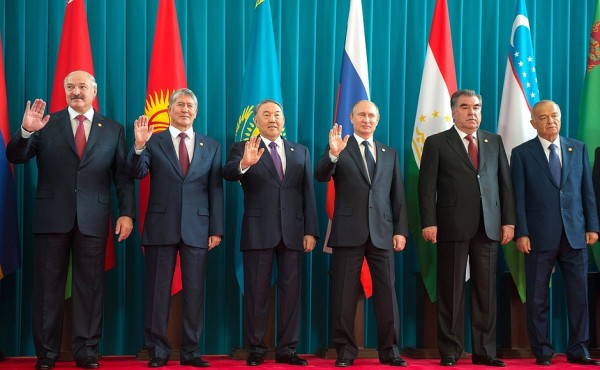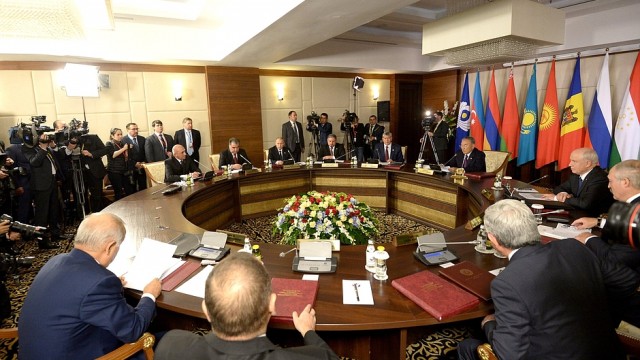By Agha Iqrar Haroon

Afghanistan War is frightening central Asian countries and their borders and this ever-increasing threat played a pivotal role in signing extraordinary defence deals among Commonwealth of Independent States (CIS) members during recent Summit. The CIS member states summit was held on October 16, 2015 at Burabay Kazakhstan.
CIS members believe that radicals and terrorists including Daeash and Taliban plan to break through into the Central Asian region from Afghanistan.
The Summit expressed concerns over situation in Afghanistan and called it “close to critical”. Uzbek President Karimov expressed his worries in session about recent wave of Afghan war and asked CIS states to stand together and help to secure borders of Uzbekistan, Tajikistan and Turkmenistan—- all former USSR states bordering Afghanistan.
CIS summit approved important documents include rapid installation of CIS-member armies at bordering Afghanistan if needed in future.
Other documents signed include the Concept for Military Cooperation between the CIS Member Countries through to 2020. This document deals with Programme for Cooperation between CIS Member Countries on Strengthening Security on External Borders.
The CIS will celebrate its 25th anniversary next year and approved city of Dasoguz in Turkmenistan as CIS cultural capital for 2016. The summit agreed to make 2016 the Year of Education and consider to celebrate 2017 as the Year of the Family. In 2016, the CIS Presidency will go to Kyrgyzstan.
The Summit approved deal of Russia with Tajikistan and Kyrgyzstan to extend its bases till 2042 and 2032 respectively and an increase of Russian troops in Tajikistan. Russia is holding its largest foreign base in Tajikistan where 5,900 Russian soldiers are performing duties. Due to increase threat in Afghanistan, Russia has replaced its fleet with modern Su-25 at Kant Airbase Kyrgyzstan.
Summit also discussed possibility of one currency policy to establish a common CIS financial market.
Russian President Vladimir Putin stressed the need to ensure the CIS Antiterrorist Centre’s effective operation and continue coordinating the work of intelligence services and keep up a constant exchange of information.
Putin in his speech said that:
It is especially important to monitor closely the situation on the CIS’ external borders, and in this respect, I agree with the President of Uzbekistan, who expressed his concern over the situation taking shape in Afghanistan. The situation there really is close to critical. Terrorists of all kinds are gaining influence and do not hide their plans for further expansion. One of their goals is to break through into the Central Asian region. It is important that we be ready for coordinated action to respond to any such attempts.
A package of documents was signed following the meeting including:
- Statement by the CIS Heads of State on Fighting International Terrorism
Legal framework for Migration Processes in the Commonwealth of Independent States
Agreements on procedures for the establishment and work of joint investigations and operations groups
Disaster prevention and relief arrangement
Concept for Military Cooperation between the CIS Member Countries through to 2020
2016–2020 Programme for Cooperation between CIS Member Countries on Strengthening Security on External Borders
Establishment of a Group formed by Border Guards and other Agencies to Settle (Liquidate) Crisis Situations on the External Borders
CIS Summit ends with decision of securing borders with Afghanistan with a rapid response force - Political observers believe that any attempt of Taliban to enter into Uzbekistan will ignite situation in the region because Uzbek Special forces are controlling Afghan-Uzbek border with a standing orders to respond strongly and even do hot pursuit if needed.
Afghanistan is a pain in the neck of the whole region but now situation is becoming grave because rapid response force from CIS can change the situation altogether.







